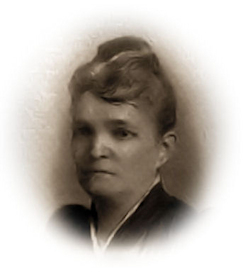Friday, Jan. 24, 1862. (On steamboat W., Mississippi River.)—With a changed name I open you once more, my journal. It was a sad time to wed, when one knew not how long the expected conscription would spare the bridegroom. The women-folk knew how to sympathize with a girl expected to prepare for her wedding in three days, in a blockaded city, and about to go far from any base of supplies. They all rallied round me with tokens of love and consideration, and sewed, shopped, mended, and packed, as if sewing soldier clothes. They decked the whole house and the church with flowers. Music breathed, wine sparkled, friends came and went. It seemed a dream, and comes up now and again out of the afternoon sunshine where I sit on deck. The steamboat slowly plows its way through lumps of floating ice,—a novel sight to me,—and I look forward wondering whether the new people I shall meet will be as fierce about the war as those in New Orleans. That past is to be all forgiven and forgotten; I understood thus the kindly acts that sought to brighten the threshold of a new life.
Note: To protect Mrs. Miller’s job as a teacher in post-civil war New Orleans, her diary was published anonymously, edited by G. W. Cable, names were changed and initials were generally used instead of full names—and even the initials differed from the real person’s initials. (Read Dora Richards Miller’s biographical sketch.)
